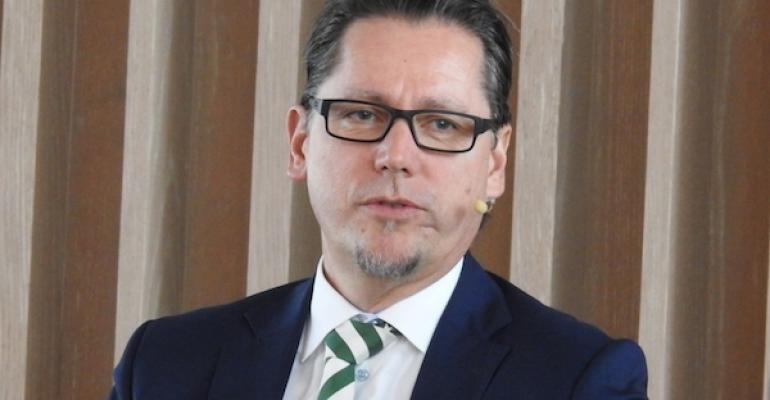Speaking a DNV GL Digital Maritime Summit in Singapore, ceo Remi Eriksen said: “But in industry 4.0 what does the future hold for shipping? Digitalisation of information in itself will allow for automation of processes and functions onboard the vessels and this again will positively impact safety, environmental and conventional performance.”
The savings in terms of operating costs could be very significant for owners. “For the next few years digitalisation for leading shipowners can reduce opex by some 30%, possibly more, and at the same time improve client safety and asset integrity.”
Speaking to Seatrade Maritime News Eriksen was coy on exactly how these levels of savings would be achieved. “There are many steps on the ladder to get to that and some of that is very confidential work we are doing with shipowners right now,” he said.
Two areas he highlighted though were condition based maintenance and reduced crewing levels.
The technology achieve the savings already exists, however, it is how this applied to operating the vessel.
“From a technology point of view the pieces are there you just have to apply it,” he said. “There are many companies try to work this out and break it down into pieces. There are some shipowners that think this can be real and are working really hard on it.”
Eriksen said he was unable to disclose the owners the classification society was working with achieve significant opex savings.
Although reducing manning is a factor in lowering operating costs Eriksen only sees autonomous or unmanned vessels becoming a reality in shortsea and coastal shipping in the near term.
“For shortsea and coastal shipping I believe autonomous ships will become a reality very soon. These will be specialised ships trading in national waters and within one jurisdiction,” Erisken stated. He cited the example Yara Birkeland, inspired by DNV GL's ReVolt concept, which will be the world's first fully electric and autonomous containership plying a 37 coastal route in Norway.
However, for deepsea vessels autonomous shipping remains much further off. “Many steps will be needed before unmanned ships can become a reality for deepsea shipping, however, some level of automation is also relevant for manned ships,” Eriksen said.
Copyright © 2024. All rights reserved. Seatrade, a trading name of Informa Markets (UK) Limited. Add Seatrade Maritime News to your Google News feed.


